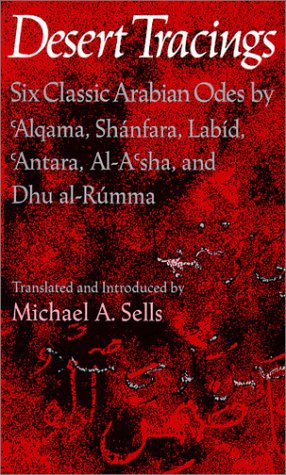Reviewed by clementine on
However, I found this book really interesting; I thought that Sells' introduction and explanations for each poem were informative, and really showed the difficult choices translators face. The most difficult thing about translating Arabic texts, in particular, is that the language has a very particular cadence and sound to it that can actually contribute to a type of linguistic beauty that is hard to replicate in English. (This is a special challenge with the Qur'an, as much of its beauty and reverence comes from the linguistic aspects of it - but modifying it to have the same sort of feeling in English often takes away from the actual meaning, obscuring the word of God.) Sells has tried to create an equivalent structure and rhythm while preserving the essential meanings of each poem. Although I don't speak Arabic so cannot possibly compare the originals with Sells' translations, I did feel that rhythmically and structurally the poems were very beautiful.
In fact, I liked Sells' introduction and explanations of translating choices much more than the poems themselves - but I am, in general, not a huge poetry person (yet, at least). However, it was remarkable to see the complexity in both structure and language of these ancient poems, especially considering that they come from the period known as "Jahiliyyah", or "ignorance". These poems seem to suggest that "Jahiliyyah" is a bit of a misnomer, in any event.
Definitely a compelling, well-constructed academic and artistic rendering of ancient Arabic poems; not entirely my cup of tea.
Reading updates
- Started reading
- 16 September, 2012: Finished reading
- 16 September, 2012: Reviewed
